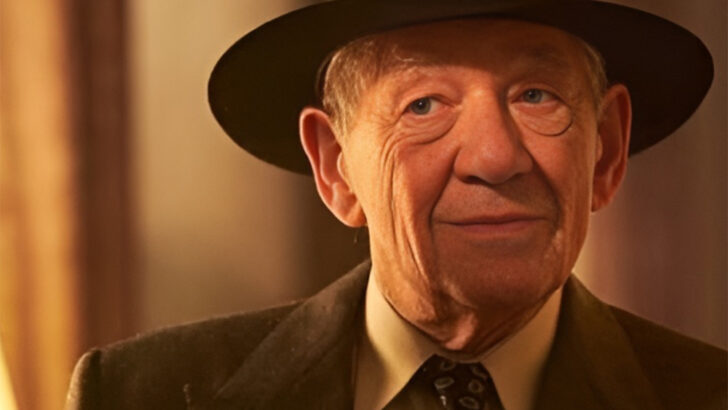The lengths a ruthless man is willing to go to in order to protect his job is explored with searing authenticity in Anand Tucker’s The Critic (15), a gothic tale of blackmail, bribery and clandestine assignations set in post-Oscar Wilde, post-Jazz Age London.
Jimmy Erskine (Ian McKellen) is a theatre reviewer. His secret lifestyle (he’s a closet homosexual living with his male secretary) and altercations with police are proving to be a problem for David Brooke (Mark Strong), his editor at The Daily Chronicle. Brooke has just taken over the running of the newspaper following the death of his father. The waspish nature of Erskine’s reviews is a further headache for him.
After being put under protective notice, Erskine secures the help of a mediocre but ambitious actress, Nina Land (Gemma Arterton), to hang on to his position.
He’s been ‘dipping his nib in nectar’ for years to lionise Nina’s performances but when he discovers that Brooke is besotted with her – he’s been sending her roses as a ‘secret admirer’ for years – he sees an opportunity for a bargaining chip to save his job. If she agrees to sleep with him, Erskine proposes, he’ll review her poor performances favourably from now on.
The quid pro quo will, he thinks, extend his tenure at the Chronicle. That’s the theory anyway. But the best-laid plans of mice and men (and desperate reviewers) gang aft a-gley.
Brooke is married to a woman who, we’re told, is “barking” (i.e. mad). The situation is further complicated by the fact that another married man, Stephen Wyley (Ben Barnes) has been ‘carrying on’ with Nina. Can she continue her louche lifestyle? Will the wheels come off when all the dissonant threads threaten to unravel?
This is an amazing film both in manner and matter. The plot twists and turns like a sinewy snake. The sumptuous sets brilliantly capture the heady excitement of the time.
Great care is essayed with the composition of every frame. I was particularly taken with a repeated shot of a flag-draped coffin at a country mansion after a second death occurs there. By now it’s almost a motif. And by Tucker’s incredible close-ups. They leap out of the screen at us.
The cast is gold. McKellan wears his evil almost comically. Arterton mixes ordinariness and eroticism sublimely. Romola Garai is perfectly blasé as Wyley’s betrayed wife. The dignified but ultimately tragic character of Brooke is perfectly caught by Strong in a delicately nuanced performance.
Patrick Marber’s script, co-written with Anthony Quinn from Quinn’s novel Curtain Call, is wonderfully succinct: “I’m being used!” “Then use him back!”
The Critic is a study of desperation. It captures the surface elegance and venal underbelly of both the upper crust and lower orders of the era it so intriguingly evokes. One couldn’t ask for a more forensic unpicking of a character, and world, sick at the core of itself.
Allow yourself to become soaked in this film’s luscious ambience.


 Aubrey Malone
Aubrey Malone
